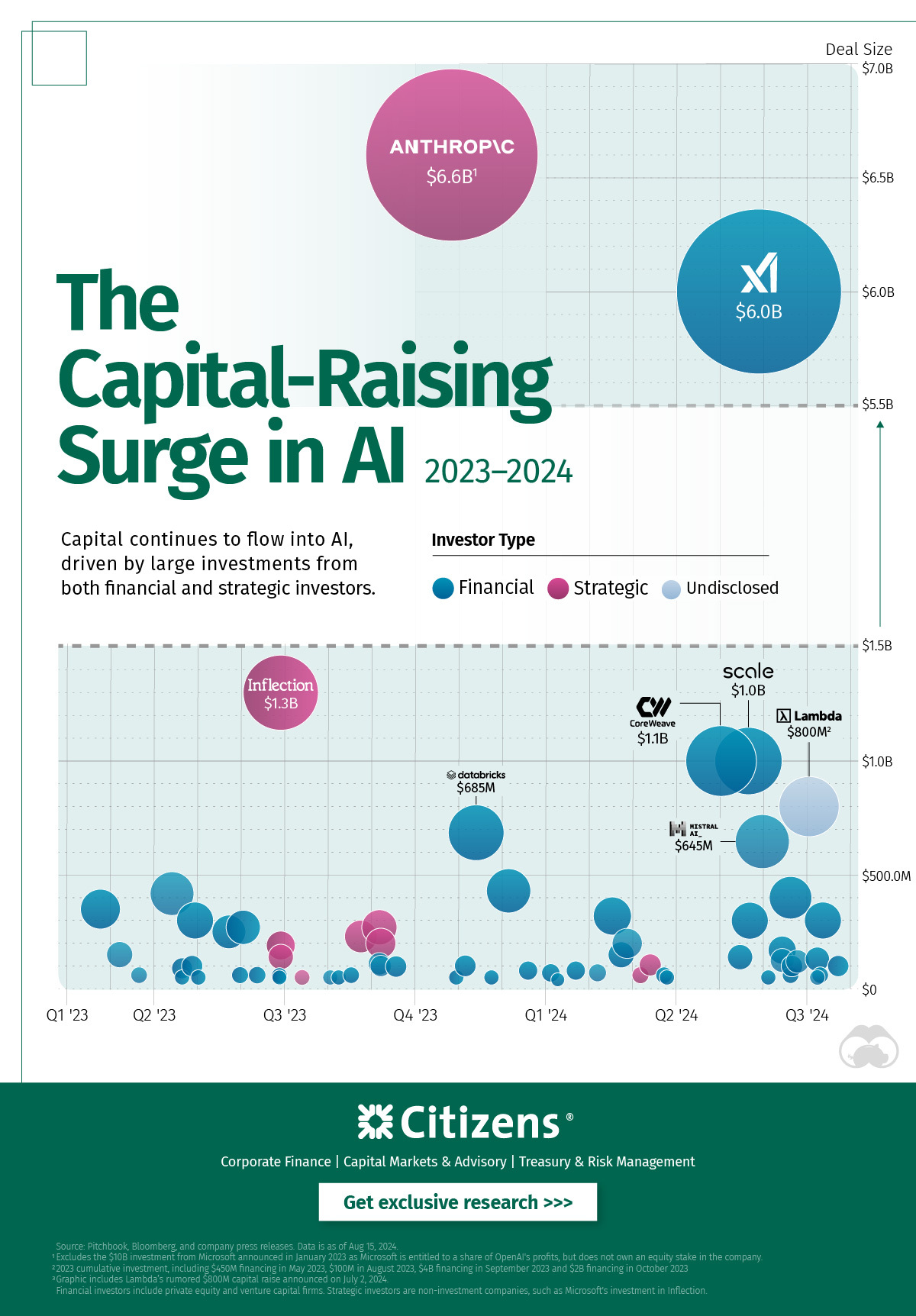Many of our best decisions, timeliest course corrections, or significant innovations occur after a seemingly disastrous occurrence. That's why many psychologists and self-help gurus encourage people to focus on the hidden gift that many of these experiences provide.
It's there if you look for it. That painful event becomes the catalyst for either something new, a better way, or a level-up.
The goal isn't just to survive - it's to thrive. While a robust business can withstand shocks and a resilient business can recover from them, an anti-fragile business improves and grows stronger when exposed to volatility, randomness, disorder, and stressors. The interesting thing about this concept is that it doesn't mean not fragile. It means things that weaken other systems are actually the things that strengthen you.
Of course, that's not the case for everyone or every event ... It takes the right mindset and the right actions to turn a trial into a triumph.
As we see the world changing rapidly, both through AI and through Trump's presidency, I think back to 2008 and how a prior incarnation of algorithms fared against it (spoiler alert: not nearly as well as this time). They say the things that don't kill you make you stronger. Here's my trial into triumph story about that.
Via Howard Getson's YouTube Channel.
Too many people become victims of their circumstances instead of choosing to be the master of their destinies.
Life is harder for people who live a life of least resistance. Doing the hard things and making the most of bad times makes life better and, ultimately, easier.
Tony Robbins calls this the Threshold of Control. If you push through the fear and the struggle ... as you persevere, eventually, what was scary becomes easy. You've increased your threshold, and that's often a permanent improvement.
Here is a list of the seven steps I use to transform almost any situation.
Seven Best Practices for Uncertain Times.
- Accept Reality: We are where we are. Focus on being complete with what happened before this – and think about this as a new beginning with an even bigger future.
- Do Something Positive: Take action and build momentum and confidence. Big wins are great. Yet, in scary times, even small items are worth noting, building upon, and stacking. Let progress build positive momentum for you.
- Take Care of Yourself: Increase your physical activity, meditation, and massage. Take time to eat and sleep well. Many studies show decision-making suffers when you're stressed. Caring for yourself goes a long way to improving many other things.
- Communicate More: The natural tendency is to hide or to recuperate in private. Instead, be open and receptive to help and ideas from friends, partners, or wherever it may come.
- Creative Destruction: The old game and the old ways of thinking are over. Shift your energy to what is working. Commit to the result you want rather than the process.
- Increase Your Options: It often takes a different level of thinking to solve a problem than the level of thinking that got you there in the first place. So, be open to opportunities, new possibilities, and more ways to win.
- Choose a Bigger Future: Instead of resigning yourself to playing small and doing with less, recognize that a clearing creates space for something even better. Choose what you want and call it into existence through your thoughts and actions.
They say everything happens for a reason. The secret is that you get to choose the reason, what it means to you, and what you're going to do about it. Choose well, and someday, you could look back on this time as one of the best things that ever happened to you.



Skype's Kodak Moment: Remnants of a Past Era
Last week, Microsoft announced that Skype would shut down in May ... after over two decades of service.
Hydrox existed before Oreo, and Betamax before VHS.
But Skype might be even more surprising. Skype was so ubiquitous that it became a verb and eponymous with video calling. As a world traveler, Skype also used to be the go-to international calling app.
Imagine if Kleenex, Jell-O, or Band-Aids went out of business.
That’s what Skype did - and it’s not the first tech business to fail similarly...
Thinking Linearly in an Exponential Age
Humans can’t do a lot of things. Honestly, the fact that we’re at the top of the food chain is pretty miraculous.
We’re slow, weak, and famously bad at understanding large numbers or exponential growth.
Making matters worse, our brains are hardwired to think locally and linearly.
It’s a monumental task for us to fathom exponential growth … let alone its implications.
Think how many companies have failed due to that inability … RadioShack couldn’t understand a future where shopping was done online – and Kodak didn’t think digital cameras would replace good ol’ film. Blockbuster couldn’t foresee a future where people would want movies in their mailboxes because “part of the joy is seeing all your options!” They didn’t even make it long enough to see “Netflix and Chill” become a thing. The list goes on.
via Diamandis
Human perception is linear. Technological growth is exponential.
There are many examples. Here is one Peter Diamandis calls “The Kodak Moment” (a play on words of “a Kodak Moment”... the phrase Kodak used in advertising to mean a “special moment that’s worth capturing with a camera”).
In 1996, Kodak was at the top of its game, with a market cap of over $28 billion and 140,000 employees.
Few people know that 20 years earlier, in 1976, Kodak had invented the digital camera. It had the patents and the first-mover advantage.
But that first digital camera was a baby that only its inventor could love and appreciate.
That first camera took .01 megapixel photos, took 23 seconds to record the image to a tape drive, and only shot in black and white.
Not surprisingly, Kodak ignored the technology and its implications.
Fast forward to 2012, when Kodak filed for bankruptcy – disrupted by the very technology that they invented and subsequently ignored.
via Diamandis
Innovation is a reminder that you can’t be medium-obsessed. Kodak’s goal was to preserve memories. It wasn’t to sell film. Blockbuster’s goal wasn’t to get people in their stores, it was to get movies in homes.
Henry Ford famously said: “If I had asked people what they wanted, they would have said faster horses.” Steve Jobs was famous for spending all his time with customers, but never asking them what they wanted.
Two of our greatest innovators realized something that many never do. Being conscientious of your consumers doesn’t necessarily mean listening to them. It means thinking about and anticipating their wants and future needs.
Meanwhile, despite Skype having several features that Zoom still hasn’t implemented, Zoom recognized an opportunity during COVID and capitalized. When Microsoft bought Skype, they focused on adding several new features and expanding the range of services instead of improving the quality of their audio or video. Meanwhile, when Zoom entered the space, they brought much better servers and the ability to have much larger rooms. More attendees meant a wider variety of use cases and quicker adoption and referral cycles. They also made it easy to join a Zoom room. Instead of getting your e-mail up front and forcing you to create an account to use it, they let you join a meeting without an account. You only needed an account to host a meeting.
They focused on making it easy to use their service and on having a clear identity instead of trying to ride every wave and become unfocused. Of course, at the same time, Microsoft stopped focusing on the tool, with an increased focus on their new competitor to Zoom, Teams.
Tech and AI are creating tectonic forces throughout industry and the world. It is time to embrace and leverage what that makes possible. History has many prior examples of Creative Destruction (and what gets left in the dust).
Opportunity or Chaos … You get to decide.
Don’t forget ... you don’t have to be the first mover to win in the end.
Onwards!
Posted at 04:37 PM in Business, Current Affairs, Film, Gadgets, Ideas, Just for Fun, Market Commentary, Personal Development, Pictures, Science, Trading, Web/Tech | Permalink | Comments (0)
Reblog (0)